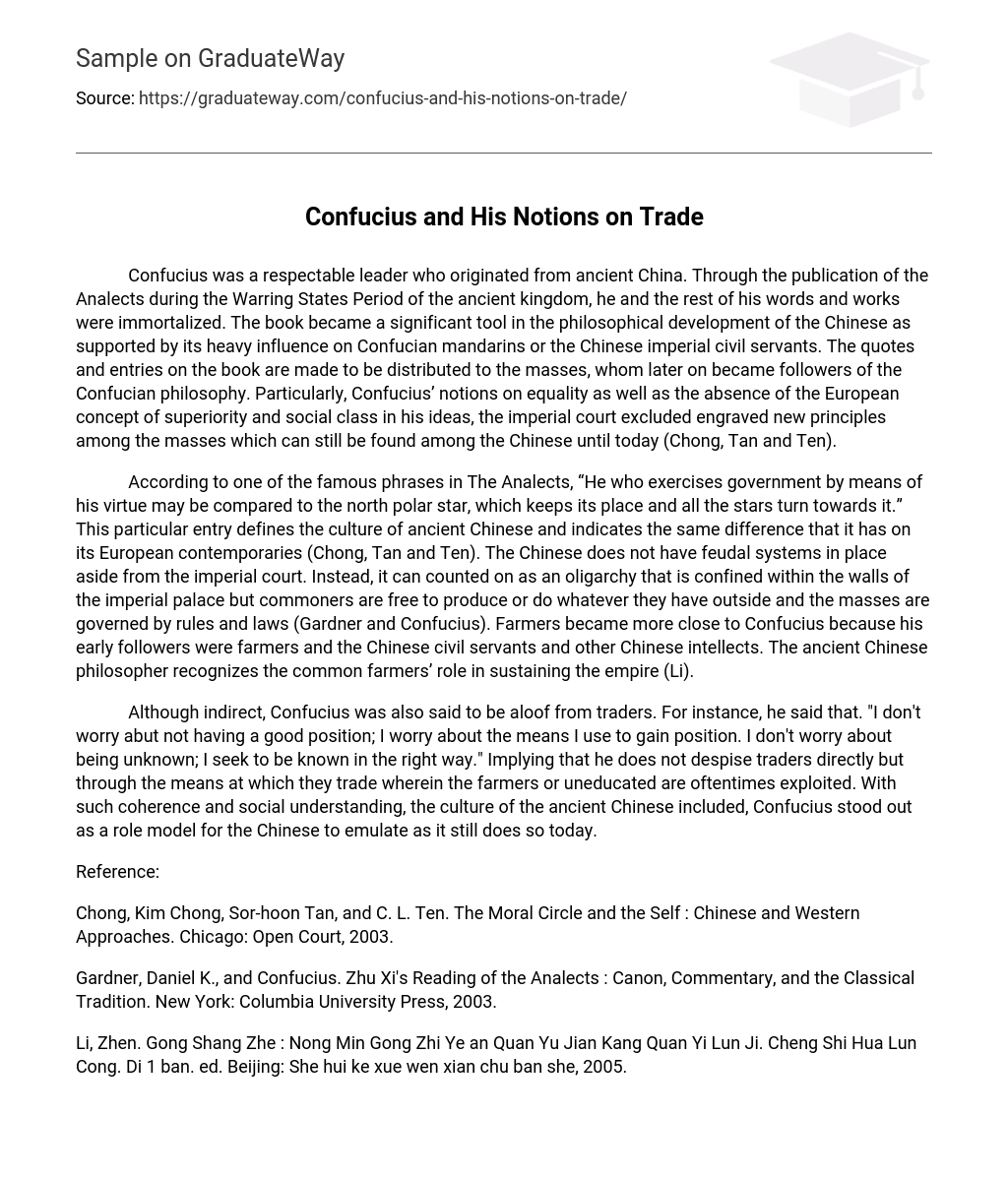Confucius was a respectable leader who originated from ancient China. Through the publication of the Analects during the Warring States Period of the ancient kingdom, he and the rest of his words and works were immortalized. The book became a significant tool in the philosophical development of the Chinese as supported by its heavy influence on Confucian mandarins or the Chinese imperial civil servants. The quotes and entries on the book are made to be distributed to the masses, whom later on became followers of the Confucian philosophy. Particularly, Confucius’ notions on equality as well as the absence of the European concept of superiority and social class in his ideas, the imperial court excluded engraved new principles among the masses which can still be found among the Chinese until today (Chong, Tan and Ten).
According to one of the famous phrases in The Analects, “He who exercises government by means of his virtue may be compared to the north polar star, which keeps its place and all the stars turn towards it.” This particular entry defines the culture of ancient Chinese and indicates the same difference that it has on its European contemporaries (Chong, Tan and Ten). The Chinese does not have feudal systems in place aside from the imperial court. Instead, it can counted on as an oligarchy that is confined within the walls of the imperial palace but commoners are free to produce or do whatever they have outside and the masses are governed by rules and laws (Gardner and Confucius). Farmers became more close to Confucius because his early followers were farmers and the Chinese civil servants and other Chinese intellects. The ancient Chinese philosopher recognizes the common farmers’ role in sustaining the empire (Li).
Although indirect, Confucius was also said to be aloof from traders. For instance, he said that. “I don’t worry abut not having a good position; I worry about the means I use to gain position. I don’t worry about being unknown; I seek to be known in the right way.” Implying that he does not despise traders directly but through the means at which they trade wherein the farmers or uneducated are oftentimes exploited. With such coherence and social understanding, the culture of the ancient Chinese included, Confucius stood out as a role model for the Chinese to emulate as it still does so today.
Reference:
Chong, Kim Chong, Sor-hoon Tan, and C. L. Ten. The Moral Circle and the Self : Chinese and Western Approaches. Chicago: Open Court, 2003.
Gardner, Daniel K., and Confucius. Zhu Xi’s Reading of the Analects : Canon, Commentary, and the Classical Tradition. New York: Columbia University Press, 2003.
Li, Zhen. Gong Shang Zhe : Nong Min Gong Zhi Ye an Quan Yu Jian Kang Quan Yi Lun Ji. Cheng Shi Hua Lun Cong. Di 1 ban. ed. Beijing: She hui ke xue wen xian chu ban she, 2005.





